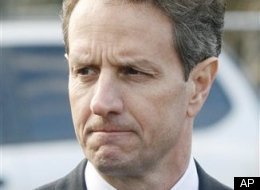What GAO Found
During fiscal year 2011, OFS addressed several of the internal control issues related to the significant deficiency we reported for fiscal year 2010 concerning its accounting and financial reporting processes. However, remaining uncorrected control deficiencies along with other control deficiencies that we identified in this area in fiscal year 2011 collectively represented a continuing significant deficiency in OFS’s internal control over its accounting and financial reporting processes. Specifically, while OFS improved its review and approval process for preparing its financial statements, notes, and Management Discussion and Analysis (MD&A) for TARP for fiscal year 2011, we continued to identify incorrect amounts and inconsistent disclosures in OFS’s draft financial statements, notes, and MD&A that were significant, but not material, and that were not detected by OFS. For fiscal year 2011, we also identified deficiencies in other OFS accounting and financial reporting procedures related to: (1) recording of noncash transactions, (2) recording of warrant adjustments, and (3) accounting for Public-Private Investment Fund (PPIF) equity distributions.
OFS had other controls over TARP transactions and activities that reduced the risk of misstatements in its financial statements resulting from these deficiencies. For significant errors and issues that were identified, OFS revised the financial statements, notes, and MD&A, as appropriate.
In addition to the significant deficiency, we identified a less-significant control deficiency relating to key patches8 that were not in place for the server9 supporting OFS’s subsidiary ledger. During fiscal year 2011, OFS addressed the three less-significant control deficiencies that existed as of September 30, 2010, and that we reported in our April 2011 management report.10
We are making three new recommendations related to OFS’s continuing significant deficiency and one related to the less-significant control deficiency. Further, our work showed that OFS had completed corrective action on 10 of the 13 recommendations that remained open at the end of the fiscal year 2010 audit, and corrective actions were in progress on the three remaining recommendations.
Why GAO Did This Study
The Emergency Economic Stabilization Act of 2008 (EESA) requires that we annually audit the financial statements of the Troubled Asset Relief Program (TARP), which are prepared by the Department of the Treasury’s (Treasury) Office of Financial Stability (OFS). On November 10, 2011, we issued our audit report including (1) an unqualified opinion on OFS’s financial statements for TARP as of and for the fiscal years ended September 30, 2011 and 2010, and (2) an opinion that OFS maintained effective internal control over financial reporting as of September 30, 2011. We also reported that our tests of OFS’s compliance with selected provisions of laws and regulations for the fiscal year ended September 30, 2011, disclosed no instances of noncompliance.
Our November 2011 audit report concluded that although certain internal controls could be improved, OFS maintained, in all material respects, effective internal control over financial reporting as of September 30, 2011, that provided reasonable assurance that misstatements, losses, or noncompliance material in relation to the financial statements would be prevented or detected and corrected on a timely basis. Our audit report also identified a continuing significant deficiency
in OFS’s internal control over its accounting and financial reporting processes.
This report presents (1) detailed information concerning underlying new control deficiencies that contributed to the continuing significant deficiency identified in our audit report, along with related recommendations for corrective actions; (2) a less-significant control deficiency that we identified during our audit, along with a related recommendation for corrective action; and (3) the status, as of November 4, 2011, of corrective actions taken by OFS to address the 13 recommendations that remained open at the end of the fiscal year 2010 audit and were detailed in our April 2011 management report. While the deficiencies we identified are not considered material weaknesses, they nonetheless warrant management’s attention and action.
What GAO Recommends
The four new recommendations presented in this report are in addition to those we have made as part of the series of reports issued on our ongoing oversight of TARP.
For more information, contact Gary T. Engel at (202) 512-3406 or engelg@gao.gov.
Recommendations for Executive Action
Recommendation: The Assistant Secretary for Financial Stability should direct the Chief Financial Officer (CFO) to revise OFS’s procedures related to recording and review of noncash transactions, to include requirements for the individual performing the quarterly noncash transactions analysis to provide adequate supporting documentation for the entire analysis and for the reviewer to review this information along with the entire Noncash Transaction Report to ensure that all necessary noncash transactions are identified and properly recorded in the general ledger.
Agency Affected: Department of the Treasury: Office of Financial Stability
Status: Open
Comments: When we confirm what actions the agency has taken in response to this recommendation, we will provide updated information.
Recommendation: The Assistant Secretary for Financial Stability should direct the CFO to establish a mechanism for the effective implementation of the review process for recording warrant adjustments.
Agency Affected: Department of the Treasury: Office of Financial Stability
Status: Open
Comments: When we confirm what actions the agency has taken in response to this recommendation, we will provide updated information.
Recommendation: The Assistant Secretary for Financial Stability should direct the CFO to develop and implement written procedures to provide reasonable assurance that PPIF equity distributions are properly recorded in the general ledger in accordance with OFS’s adopted accounting methodology.
Agency Affected: Department of the Treasury: Office of Financial Stability
Status: Open
Comments: When we confirm what actions the agency has taken in response to this recommendation, we will provide updated information.
Recommendation: The Assistant Secretary for Financial Stability should establish procedures for coordinating with the Treasury Chief Information Officer to ensure the timely installation of patches to the Core Information Transaction Flow (CITF) system.
Agency Affected: Department of the Treasury: Office of Financial Stability
Status: Open
Comments: When we confirm what actions the agency has taken in response to this recommendation, we will provide updated information.
[ipaper docId=81497051 access_key=key-i1b6udglfyzon4ys5h6 height=600 width=600 /]










Recent Comments